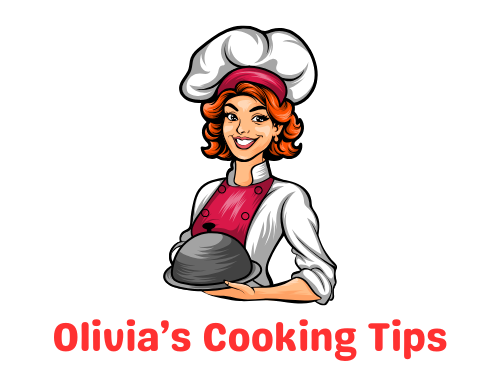Fannie Farmer Cookbook – That Changed American Cooking
The Fannie Farmer Cookbook stands as a trusted guide for home cooks across generations. First published in 1896, this book introduced standardized measurements to American kitchens, making recipes more reliable and easier to follow.
Fannie Farmer, a teacher at the Boston Cooking School, believed everyone could cook well with the right instructions. Her cookbook didn’t just offer recipes—it taught readers the “why” behind techniques, setting it apart from others of its time.
With over a century of updates, this cookbook has kept its place on kitchen shelves by blending tradition with changing food trends. Readers find simple instructions, comforting meals, and practical tips that still work today.
From hearty stews to light desserts, the book offers something for every level of cook. Its lasting popularity proves that clear, thoughtful guidance never goes out of style. The Fannie Farmer Cookbook remains more than a collection of recipes it’s a piece of culinary history.
The Fannie Farmer Cookbook has been a kitchen favorite for over a century. Loved by beginners and experts alike, it holds nearly 2,000 recipes. From simple soups to fancy main dishes, this book brings cooking into every home.
It has stood the test of time, teaching Americans how to prepare meals with confidence. With updates by Marion Cunningham, this cookbook stays fresh while keeping its heart in tradition.
Author Background
Who Was Fannie Farmer?
Fannie Merritt Farmer was born in 1857 in Boston, Massachusetts. She studied at the Boston Cooking School, where she later became principal. Her deep love for cooking and education led her to write her famous cookbook.
She believed in clear instructions. That’s why her recipes include exact measurements and step-by-step guidance. This was new and helpful in her time. Fannie wanted everyone to feel confident in the kitchen, even if they were just starting out.
Marion Cunningham’s Contribution
In 1979, Marion Cunningham gave the book a modern touch. She updated recipes and added new ones. But she kept the book’s heart and spirit alive. She focused on clear instructions and useful kitchen tips.
Cunningham made sure the cookbook could serve both beginners and experienced home cooks. Her updates included popular dishes from many cultures, showing the rich mix in American kitchens.
Cookbook Overview
A Timeless Classic
The cookbook first came out in 1896. It was called The Boston Cooking-School Cook Book. Over time, it became known as the Fannie Farmer Cookbook. It was more than just recipes—it was a learning tool. Many families used it to teach cooking basics.
The 13th edition, updated by Cunningham, keeps this tradition alive. It includes recipes from older editions and adds fresh, modern ones. Readers get both old favorites and new flavors in one place.
What Makes It Special
Marion Cunningham wrote with warmth and clarity. She gives tips and advice in a friendly voice. It feels like having a kind teacher in the kitchen. Every detail matters—from how to boil water to making holiday meals.
This edition also explains tools, ingredients, and terms. It’s like a full kitchen guide, not just a recipe book.
Recipe Categories
Traditional American Favorites
You’ll find many classic dishes. These include:
-
Roast Stuffed Turkey
-
Boston Baked Beans
-
Apple Pie
-
Indian Pudding
-
Old-Fashioned Beef Stew
These are the meals that bring back memories and fill homes with comforting smells.
International Flavors
American cooking has changed with time. This edition reflects that. It includes flavors from other cultures, like:
-
Cucumber Sushi
-
Enchiladas with Chicken and Green Sauce
-
Polenta and Fish
-
Mediterranean Salads
These recipes show the diversity in today’s kitchens.
Breads and Baked Goods
Baking at home has become popular again. The cookbook includes forgotten gems like:
-
Anadama Bread
-
Homemade Biscuits
-
Classic Muffins
Clear directions help even new bakers succeed.
Soups and Starters
Warm and easy to prepare, soups are a big part of this book:
-
Pumpkin Soup
-
New England Clam Chowder
-
Vegetable Broth
These dishes work well for lunch or light dinners.
Everyday Meals
The cookbook includes simple recipes for daily cooking. You’ll find:
-
Quick Pastas
-
Grilled Chicken
-
Fresh Salads
-
Rice and Beans
The goal is flavor, not fuss.
Features
Clear Instructions
Each recipe uses simple language. Steps are short and easy to follow. This helps cooks avoid mistakes and feel confident.
Kitchen Tips and Tricks
Marion Cunningham adds helpful tips throughout the book. You’ll learn:
-
How to boil eggs
-
How to brew a perfect cup of tea
-
How to choose the right pan
These tips help you improve over time.
Focus on Fresh Ingredients
The recipes highlight real, fresh ingredients. No need for fancy tools or hard-to-find items. Good food starts with good ingredients, and this cookbook sticks to that idea.
Cooking Basics Included
For those just starting out, the cookbook teaches everything from scratch. It explains cooking terms, tools, and basic techniques. Even small things, like how to measure flour or stir a pot, are explained.
A Friendly Voice
Marion Cunningham speaks to readers with care. Her tone is warm and helpful. It feels like she’s guiding you step by step. That support matters, especially for nervous beginners.
A Cookbook for Everyone
This book fits in every kitchen. Whether cooking for one or a family, you’ll find recipes to match. You don’t need a lot of experience. All you need is the book, fresh food, and a little time.
The Fannie Farmer Cookbook continues to be a trusted friend in the kitchen. With recipes both old and new, it helps home cooks grow and enjoy the process. Whether you’re learning to cook or adding new meals to your weekly plan, this book offers support, flavor, and tradition in every page.
The Fannie Farmer Cookbook has been a favorite in kitchens for over 100 years. It started in 1896 and still helps people cook tasty, homemade meals. This book is more than just a list of recipes. It also teaches readers how to cook with clear steps. Even beginners feel confident using it.
Fannie Farmer, the author, believed everyone should understand cooking. She was one of the first to use standard measurements in recipes. Thanks to her, cups, teaspoons, and tablespoons became part of everyday cooking. Let’s explore what makes this cookbook special.
Cookbook Overview
A Book That Changed American Cooking
The Fannie Farmer Cookbook was first published in 1896. It offered something new—exact measurements and step-by-step instructions. Back then, recipes often used vague terms like “a pinch of salt” or “some butter.” Fannie made it easier for people to follow directions and get good results.
This book was helpful for both experienced cooks and complete beginners. Over the years, it has stayed popular because of its clear style and strong focus on basics.
More Than Recipes
This cookbook is not only about food. It also talks about how to set the table for tea, how to clean the kitchen, and how to plan holiday dinners. It brings readers into a time when cooking was part of daily life. It teaches readers to enjoy the simple things.
There are full menus for holidays, advice for housekeepers, and even how to cook tricky meals like calf’s head. This makes the book fun to read, even for people who don’t cook often.
Recipe Categories
Everyday Meals
The cookbook includes recipes for basic meals like eggs, soups, and casseroles. Even boiling an egg has a spot in this book. These simple meals help new cooks get started without stress. Each recipe uses easy words and tells readers what to do, step by step. There’s no guesswork involved.
Baked Goods and Desserts
Baking is one of the strongest parts of the Fannie Farmer Cookbook. It includes cakes, cookies, breads, and pies. The recipes are clear and dependable. If you want to bake a loaf of bread or try an old-fashioned apple pie, this book is a good guide.
Holiday Dishes
Special events need special food. This cookbook offers full menus for Thanksgiving, Christmas, and other holidays. It suggests what to serve and how to prepare each dish. This helps cooks plan meals without feeling overwhelmed.
Meats and Main Courses
The book covers many meat dishes, from beef stew to roasted chicken. It also teaches how to prepare less common items, like calf’s head. These parts show the history of American cooking. The focus is always on flavor, not on fancy ingredients. Most items are easy to find.
Vegetables and Sides
Vegetables are important in daily meals. The cookbook shows how to cook them in tasty ways. It includes mashed potatoes, corn pudding, and more. Each recipe keeps it simple and uses common ingredients. The goal is to make the food delicious and easy to prepare.
Breakfast Ideas
Morning meals often get skipped, but this cookbook has good options. Pancakes, oatmeal, and muffins are just a few of the recipes listed. Even if you’re new to cooking, these dishes are easy to try.
Sauces and Spreads
Sauces add flavor. This cookbook has many options—gravy, dressings, and sweet jams. These simple extras can change a meal completely. Every sauce recipe tells how much of each ingredient to use and what to do next.
Beverages
The book even includes drinks. There are teas, hot cocoa, and party punches. This section adds variety to any meal. Even setting the table for tea is covered with helpful tips.
Preserving and Canning
In the past, many families preserved food. This cookbook shares how to make jams, jellies, and pickles. It explains the steps clearly. People who enjoy traditional food prep will love this section.
Special Diet Meals
Although not modern in its approach, the cookbook includes light meals and simple dishes for people who prefer plain food. These options work well for sensitive diets. It proves that old cookbooks can still be useful for health-conscious cooking.
Features
Easy Instructions for Beginners
Each recipe uses short steps and plain words. This helps people who are just learning to cook. You don’t need to guess what to do. Even boiling water is explained in a way anyone can understand.
A Huge Collection of Recipes
There are 1,380 recipes in this book. That’s a lot of options. Readers can cook a new dish every day for years. This large variety makes it a great book for every home kitchen.
Standard Measurements
One of the most important things about this book is the use of standard measurements. Fannie Farmer helped make this normal in American recipes. She used cups, teaspoons, and tablespoons. This change made cooking more exact and meals more consistent.
Teaches Kitchen Skills
The book goes beyond recipes. It teaches readers how to set a table, how to keep the kitchen clean, and how to plan meals. These skills are helpful for everyday life. This makes the book more than just a recipe guide.
A Window Into the Past
The Fannie Farmer Cookbook also shows how people used to live and eat in America. Reading it feels like taking a step back in time. It’s filled with old-fashioned advice and charm. People who love history enjoy reading the tips and menus.
Trusted by Many Generations
Since 1896, this cookbook has been passed down in families. Many people still use it today. Its advice and recipes have stood the test of time. This shows how useful and reliable the book really is.
Good for All Skill Levels
Beginners like it because the instructions are clear. Experienced cooks enjoy the classic recipes. Everyone finds something helpful in this book. This wide appeal is part of what keeps the book in print.
Perfect for Everyday Use
This is not a book that gathers dust. Many people keep it in their kitchens and use it often. Whether making a sandwich or planning a holiday meal, this book has ideas. It helps make cooking part of everyday life.
Helps Build Confidence
The clear directions and step-by-step format help readers feel sure of themselves. Even people who fear the kitchen can follow along and make good meals. This makes cooking less stressful and more fun.
A Valuable Gift
Though not focused on selling, it’s worth noting this book is often given as a gift. Parents pass it on to children. Friends share it with others who love to cook. That speaks to its lasting value.
The Fannie Farmer Cookbook offers more than just food it gives readers a full kitchen experience. From boiling an egg to planning a feast, it guides every step. Cooks of all levels can learn something new.
This simple, honest book has helped generations enjoy food and home cooking. It’s a trusted classic that continues to serve families, one recipe at a time.










